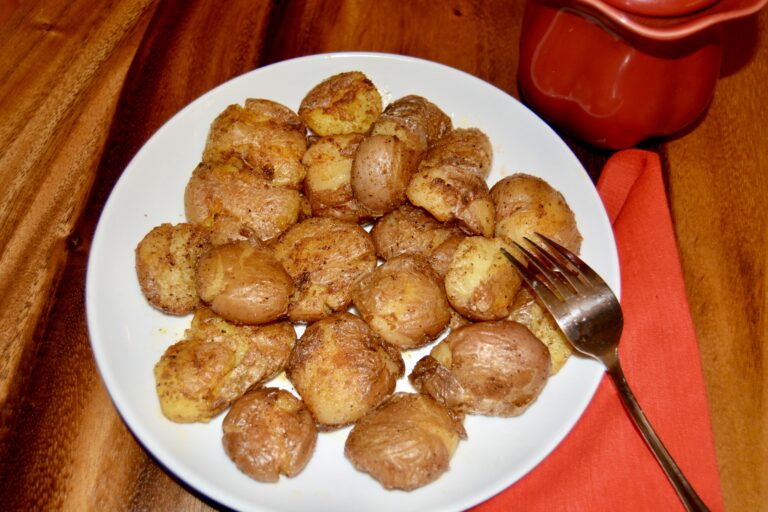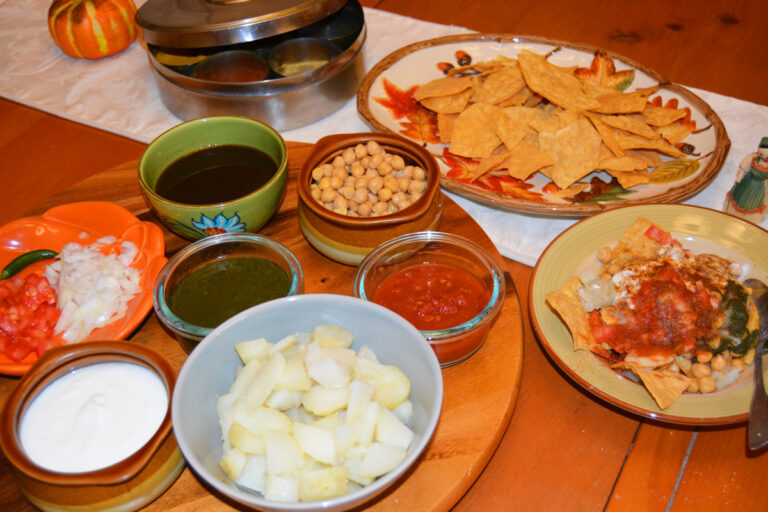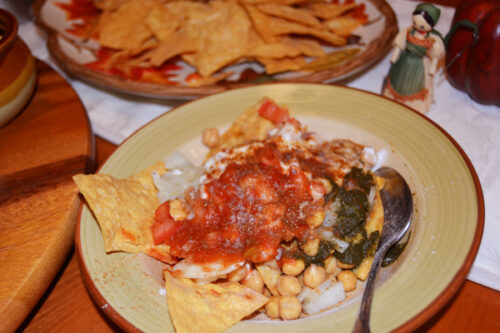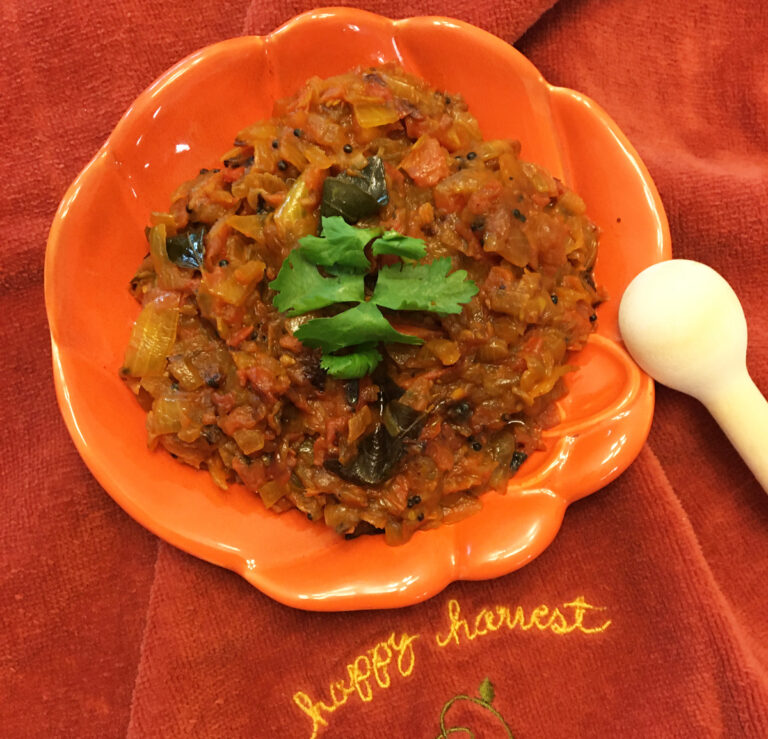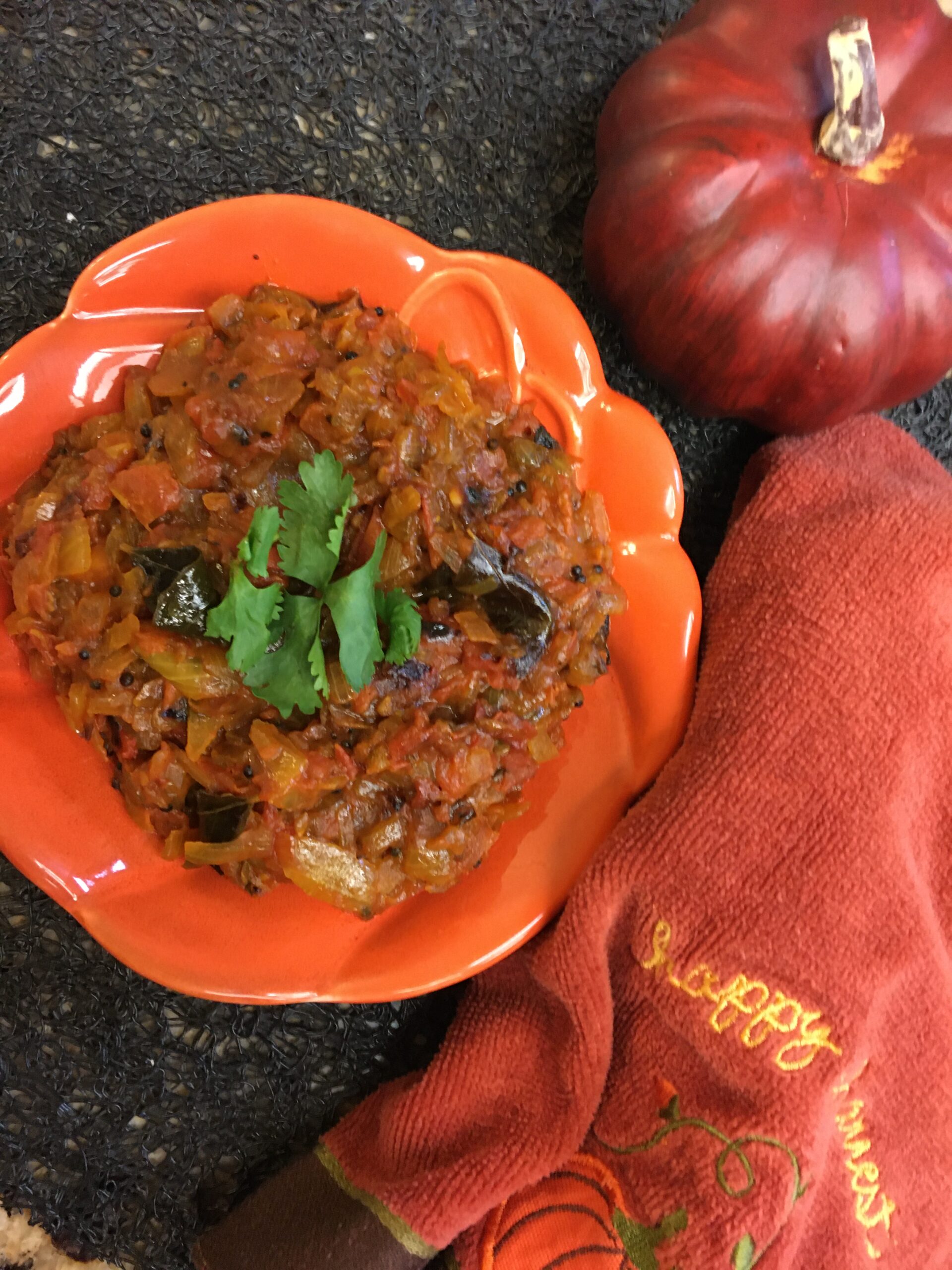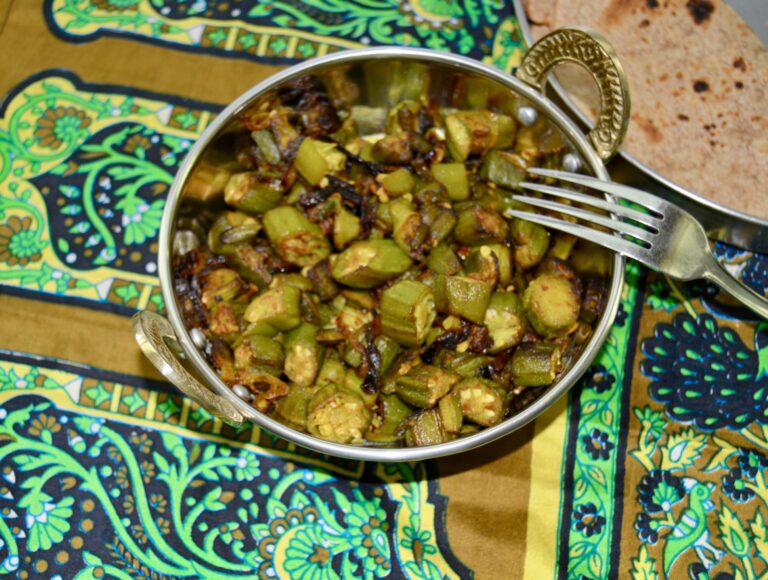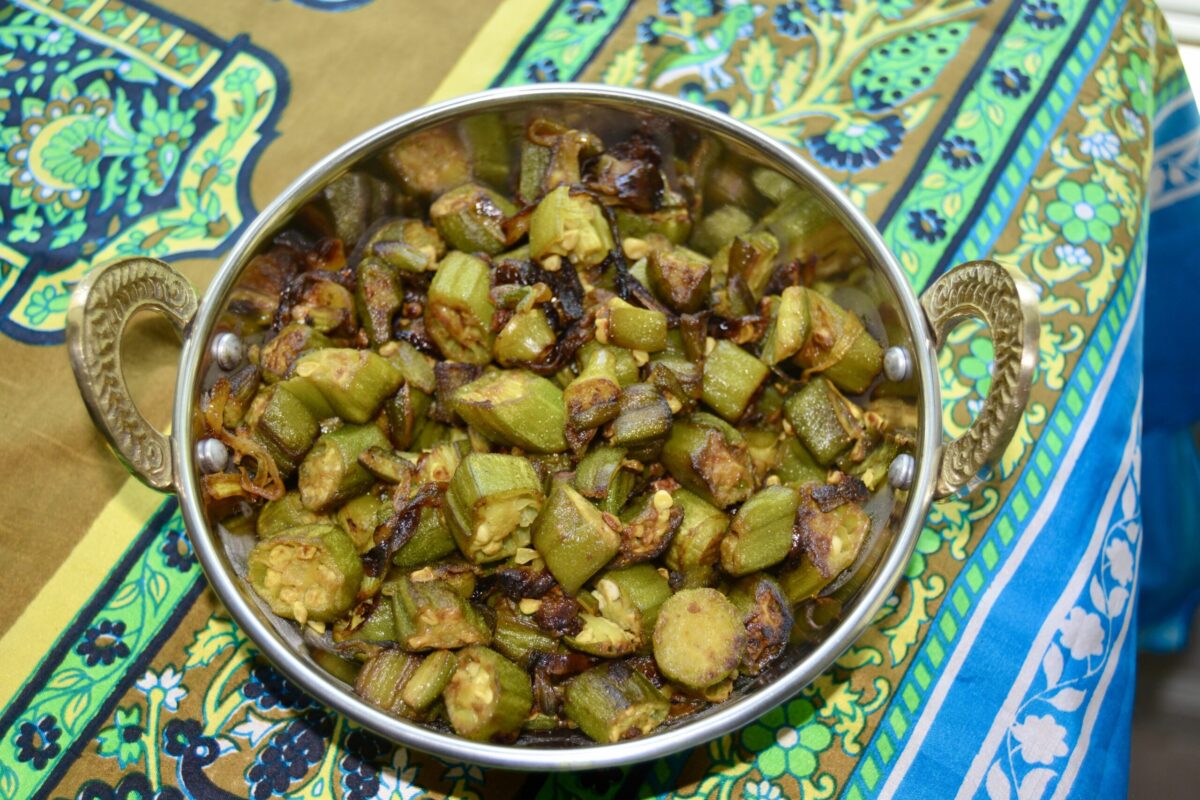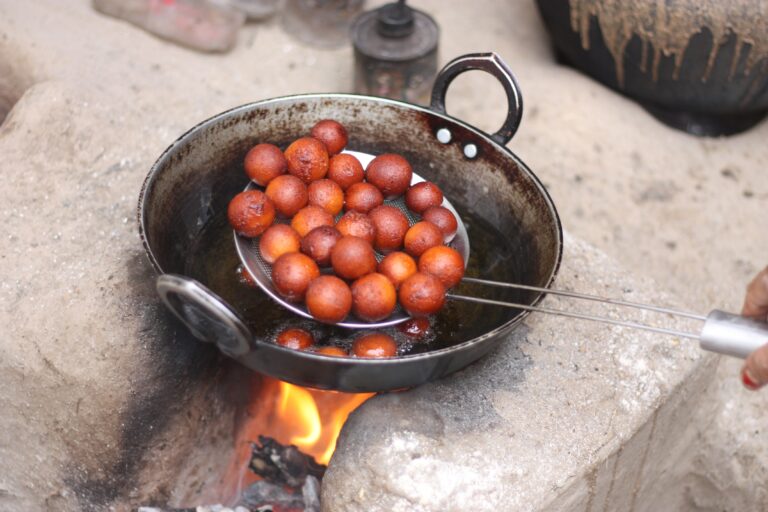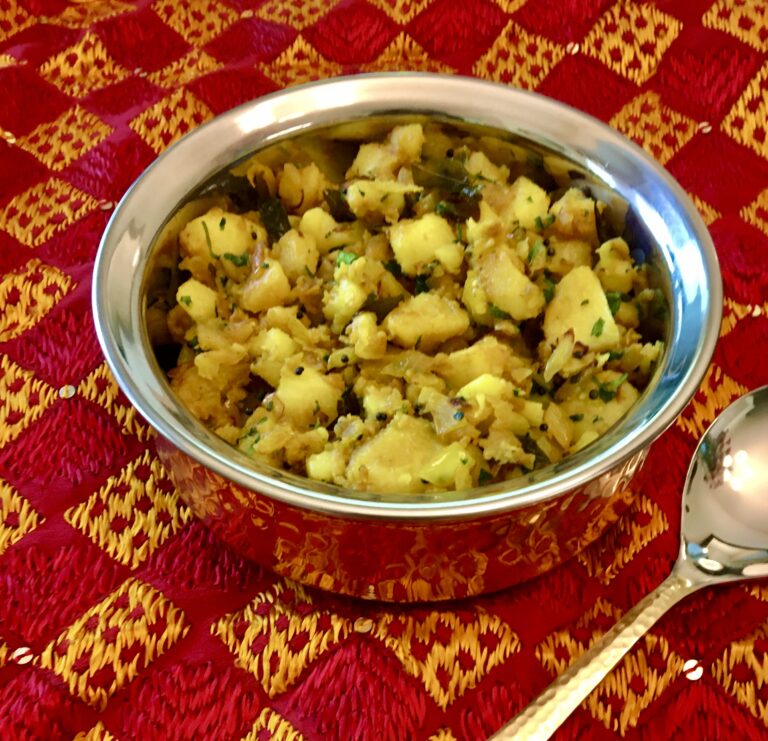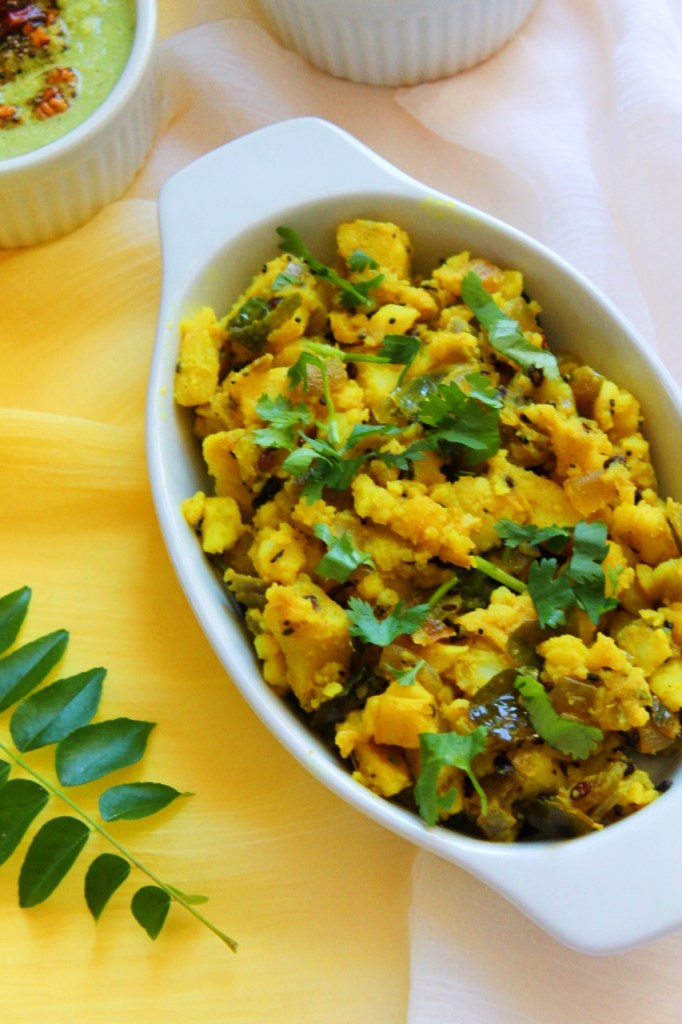I have a bunch of small white potatoes that have been sitting in the bin for a while. I decide to use them before they start to sprout! I recall my mother-in-law used to make a dish out of taro root (arbi), a root vegetable. The ones she used were similar in size to the potatoes. I decided to try the recipe out on these potatoes. They are tangy and spicy.
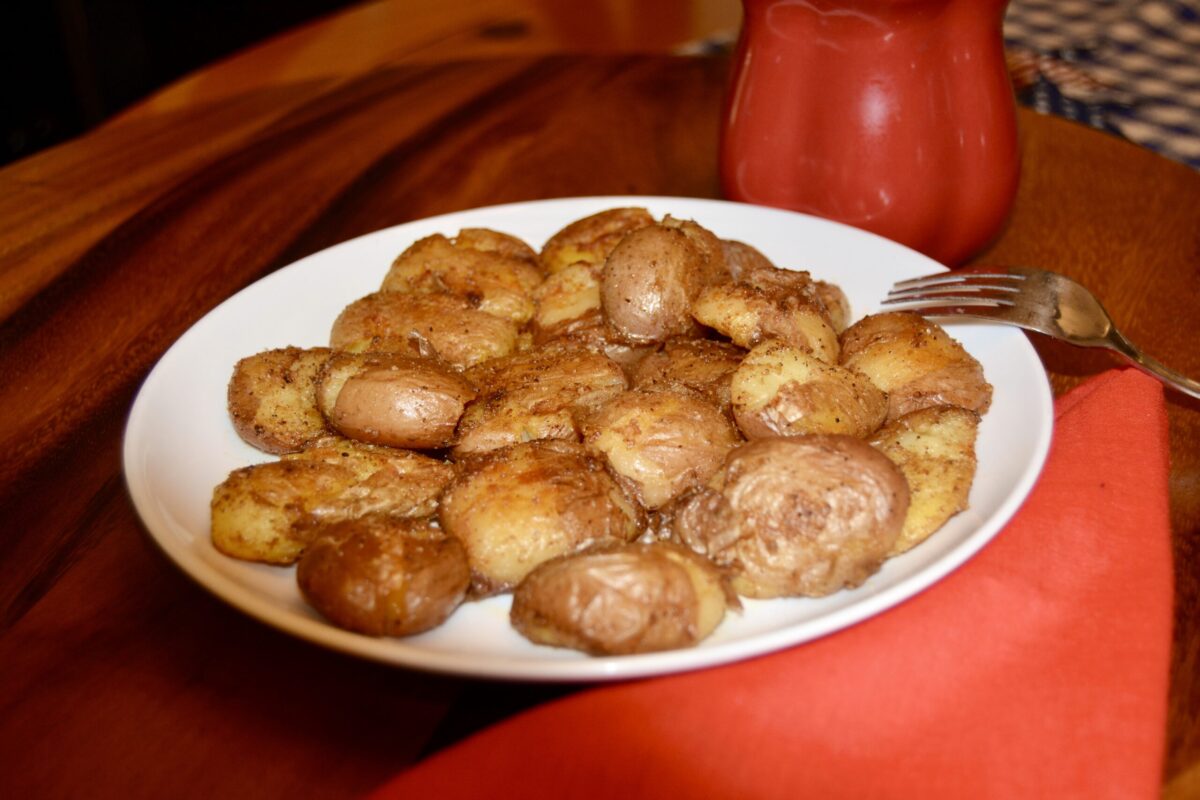
Spicy Smashed Masala Potatoes
Ingredients
- 1 lb small red or white potatoes (about 14-16, depending on size)
- ½ tsp turmeric powder
- 1 tsp cumin powder
- ½ tsp chili powder (or to your taste)
- 1 tsp amchur (mango) powder (you can find this at your local Indian grocery store)
- ¼ tsp garam masala
- 1 tsp salt (or to your taste)
- 3 tbsp oil (for frying)
- 1 pinch chaat masala or red chili (or Tajin Mexican spice)
Instructions
- Scrub the potatoes and put them in a medium-sized pot. Cover with about 2 inches of water and bring to a boil on medium heat.
- Cook until tender but firm. Drain and set aside until cool enough to handle. Do not peel the potatoes. Pat dry and drizzle a teaspoon of oil over the potatoes. Gently coat each potato with the oil.
- Place each potato on a clean flat surface and gently press down on the potato until they flatten out. They will split a bit, but if you do it gently, they will not split apart.
- Mix the powdered spices together. Coat each potato with the spice powder.
- Heat oil in a skillet or frying pan on medium heat. Add the potatoes one by one but do not crowd them into the pan.
- Fry the potatoes for 2-3 minutes on each side until lightly brown and crisp.
- Drain on paper towels.
- Transfer to a serving platter and squeeze the juice of half a lemon over the potatoes.
- Follow it up with a sprinkling of chaat masala or red chili powder. Alternatively, you can sprinkle some Mexican Tajin chili and lemon powder.
- Good as a side for a meal or a snack at teatime or having cocktails!

